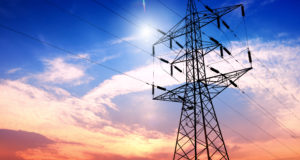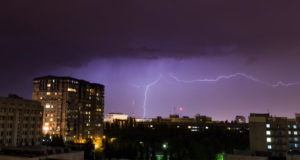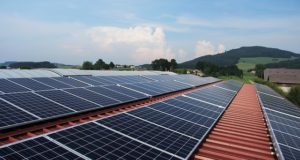 Research and development of alternative and renewable energy sources is becoming big business. More companies are recognizing that people wish to reduce their dependency on foreign oil and utility companies that charge high prices. Geothermal heating and energy is an efficient method of heating, cooling and potentially powering your home, allowing you to reduce or remove your need for utility connections and oil or gas for your furnace.
Research and development of alternative and renewable energy sources is becoming big business. More companies are recognizing that people wish to reduce their dependency on foreign oil and utility companies that charge high prices. Geothermal heating and energy is an efficient method of heating, cooling and potentially powering your home, allowing you to reduce or remove your need for utility connections and oil or gas for your furnace.
Geothermal heat comes from within the Earth. Below the top layer of the ground, at least six or more feet, the Earth maintains a constant temperature of approximately 50°- 60° Fahrenheit. The amount of available heat increases with depth, especially in areas with volcanic activity such as Iceland and the Pacific Rim— for the United States, this would mean the West Coast, Alaska and Hawaii. In these areas, it is possible to access greater amounts of heat closer to the Earth’s surface.
Iceland and certain regions of the United States make extensive use of geothermal power: California in particular has constructed a large number of geothermal power plants, and Iceland gets over 50% of its power and heating from geothermal sources. With such potent supplies of geothermal heat, it is possible to operate high-capacity power plants that produce enough electricity to provide all the necessary power for mid-sized cities.
Although not every region of the world has access to these robust sources of geothermal heat, it is still possible to use the heat contained near the Earth’s surface to heat and cool your home. Geothermal is a more consistent source of alternative energy than solar or wind—there are very few fluctuations within the Earth. Instead of coping with the wind dying down or the sun setting at night, you receive a constant, uninterrupted flow of warm or cool air.
Geothermal energy and heat can be accessed by drilling holes down into the ground and installing the appropriate looped piping system. If a source of hot water is found underground, this can be used to create energy or heat a home. If there is no underground source of water, a refrigerant fluid is circulated through the pipes to absorb heat from the ground or to dissipate heat into it, depending on the temperature and season.
Geothermal Systems and Installation
Geothermal systems require a certain amount of land for installation. However, since the installation is underground, it will not take up precious yard or garden space. There are two main types of installation, vertical and horizontal, and their usage depends on the terrain where the system will be installed. Another factor to consider is whether a closed or open-loop system is appropriate for your property. A closed-loop system continuously circulates water or refrigerant through the pipes. An open-loop system will discharge water at one end, which requires a suitable disposal area for the waste liquid.
The systems use pumps to move water or refrigerant fluid through the loop pipes. The fluid moves slowly to allow it to absorb and retain warmth that is then carried to your home and distributed through the heating system. In the summer, the water carries heat from your home down into the ground, dissipating the heat into the cooler rock or soil and then carrying cool water back to your home to provide relief similar to air conditioning. The pumps require a minimal amount of energy to operate. Other alternative energy sources, such as solar panels or wind and water turbines, can provide this power and effectively free your home from grid energy dependence.
The terrain surrounding your house plays a role in determining which of these systems to use. If there is a large amount of rock, it may be simpler to drill straight down rather than excavate for a horizontal system. If you have a pond or lake near your home, the system’s pipes can be placed at the bottom of the body of water, out of sight, and they will function similar to underground pipes. For those with large yards or fields around their homes, it can be less expensive to dig up the grassy area and use a horizontal system. A geothermal professional can determine the optimal configuration for your property, including the correct depth for the pipes to provide the right amount of heating and cooling for your home.
Geothermal systems are expensive to install, and can cost as much as $20,000 – $30,000. When considering this type of alternative power, it is important to compare that cost to the savings realized by relieving yourself of monthly electricity and fuel bills for heating and cooling. In addition, a geothermal system will provide free hot water for your home during the summer and low-cost heating for your hot water in the winter. The system generally pays for itself within the first decade after installation, and with proper maintenance it can operate for 40-50 years before any replacements are needed.
 Off The Grid News Better Ideas For Off The Grid Living
Off The Grid News Better Ideas For Off The Grid Living



